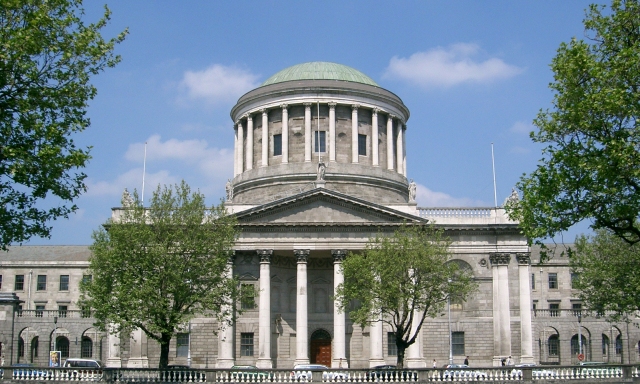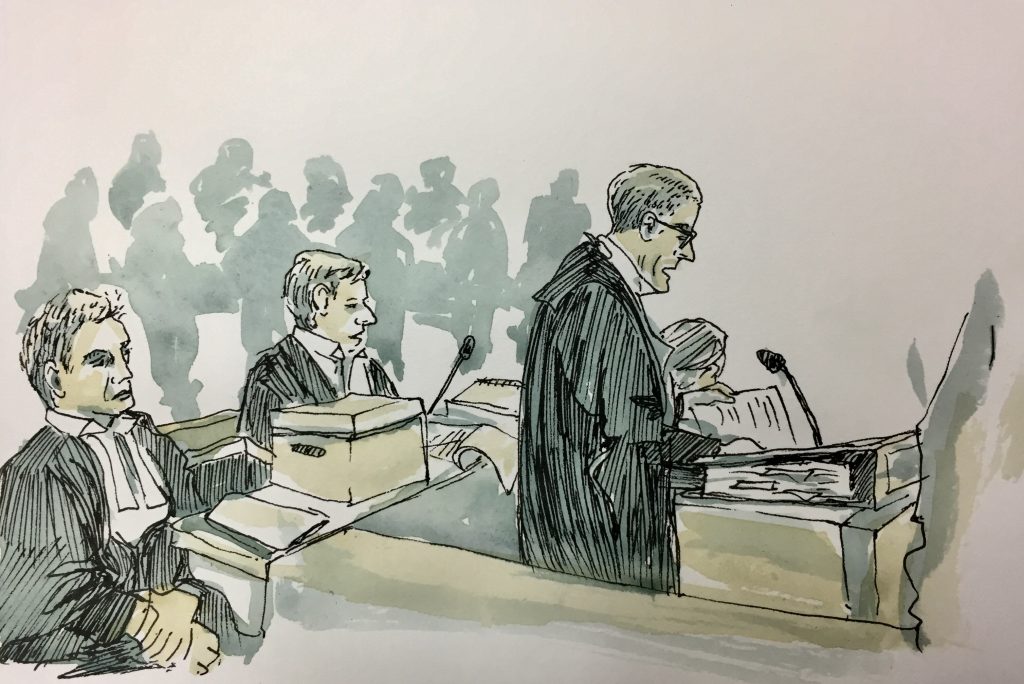Planning Bill will restrict access to justice rights, warn legal experts

December 20th, 2019
Plans from the Minister for Housing to bring in more stringent rules to take legal challenges over planning decisions would see the State backslide on access to justice rights, according to planning and environmental law experts.
Speaking at an event held by the Planning, Environmental, and Local Government Bar Association of Ireland last night, several legal experts raised concern with the recently released Heads of the Housing and Planning Development Bill 2019.
If passed, the Bill set to be brought forward by Eoghan Murphy TD would introduce a new cost regime and change standing rules for citizens and environmental groups to take legal challenges over a whole range of planning-related decisions.
The Government has said that the proposed changes are justified due to an increase in legal challenges that it argues is giving rise to backlogs in the Courts and associated project delays.
Standing thresholds tightened
Rory Mulcahy SC said that the State can challenge this perceived issue by either limiting or speeding up legal proceedings, with the Heads of the Bill seemingly falling under “Option A”.
Mr Mulcahy SC said that it is very difficult to see how the proposed changes will create a more streamlined system as “every time you change the law, you end up with more case law”.
Providing a general overview of the proposed changes, Rory Mulcahy SC said that they would see standing thresholds tightened and costs protections “diluted”.
The proposed legislation, for example, would make it stricter for environmental groups to qualify for standing to bring a legal case by mandating that groups must be in existence for at least three years and have over 100 members.
This, Mr Mulcahy said, whether intended or not, will remove automatic standing rights of many national groups as well as local citizen-led campaign groups set up solely to challenge a particular development.
He said that the Bill also calls for “significant changes” in standing requirements for individuals so that applicants will have to show “substantial interest” in the proposed development rather than the current lower threshold of “sufficient interest” in order to bring a case.
They would also have to show that they are directly affected by the proposed development and also demonstrate prior participation in the planning process by, for example, sending a submission on a live planning application.

‘Bemusing and extraordinary’ proposal
The Heads also outline a proposal to limit the ability to bring cases over certain clerical and unintentional mistakes or errors of omissions in either the original planning application documents or in the Board’s decision itself.
Applicants can only take a case in this situation after they first discuss the error with the Board and the Board subsequently refuses to grant the request to accurately update the incorrect information.
Oisin Collins BL described proposal as “quite an extraordinary section” as it will create a laborious extra burden on prospective applicants who, on examination of a planning decision, will have to try and figure out if any of the text that concerns them in the decision are in fact clerical or typographical errors or figure out if there is an erroneous omission of information.
“So now it appears that we have to write to them to work out, first of all, is this an error, second of all was it intended, and third, what do they intend doing about it,” he said, all of which would significantly eat into the short eight-week window in which to file proceedings.
“I honestly just think that is bemusing [and] extraordinary that somebody has considered that this should be included in the legislation,” Mr Collins said. “It’s unthinkable really how that’s going to end up in anything other than a veritable omnishambles.”

Prohibitive costs concerns
Mr Collins also strongly questioned proposals in the Bill to row back on existing cost rules that would make it very expensive for the public and environmental NGOs to take legal cases.
This, he said, would put us out of kilter with international and EU requirements that costs in environmental cases should not be prohibitively expensive.
The high cost of legal challenges in environmental cases in Ireland is recognised as an issue by the European Commission and the EU Court of Justice.
The current costs regime allows for each side to bear their own costs, and it is feasible for successful litigants to be awarded costs if they are successful. This can make it possible to engage with lawyers on a no foal, no fee basis.
The new rules proposed would see a cost cap of €5,000 for individuals and €10,000 for groups. The Bill would also set a limit on awards of €40,000 in successful challenges regardless of how much the case actually costs you.
Mr Collins said that the people who will be most severely punished by this proposal are those who bring and win their cases as the entire legal process – that can involve challenges all the way to the Supreme Court – will likely cost far in excess of the award limit of €40,000.
As the proposed legislative changes would allow the courts to vary the costs and award amounts, Mr Collins said that we will end up in a situation where the court will have to decide in every case “whether or not it needs to bend these cost caps”.
“That is going to require a very lengthy hearing – a lengthy and awkward and difficult hearing – involving people having to outline their financial circumstances, outline how much they have to pay the lawyers, how much they hope to be able to recover and so on,” he added.
“And then you’re also going to have to consider all of the work that was done and the court is going to end up effectively doing the job of the taxing master, and it doesn’t seem to me that there is any need for that at all and it’s going to add yet further costs and expense and delay to all of these cases.
“If [the Bill] is designed to frustrate litigation, inherently it falls foul of the Aarhus Convention so that’s going to be a problem. If it is designed to expedite the litigation then it is absolutely failing in that regard as it is just layering complexity,” Mr Collins added.
A public consultation on the Heads of the Bill was launched on 9 December with a deadline of 13 January, providing concerned parties just 23 working days over the holiday period to provide feedback.
Following pressure from environmental groups, opposition politicians, and Committee members, the Minister agreed on Tuesday to extend the deadline until 27 January 2020.
[x_author title=”About the Author”]







